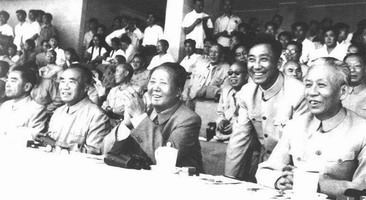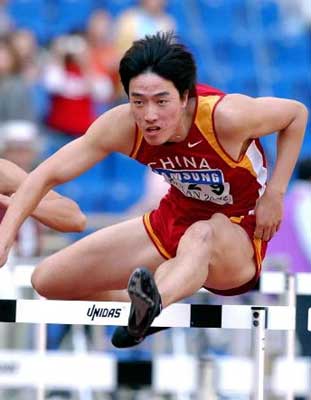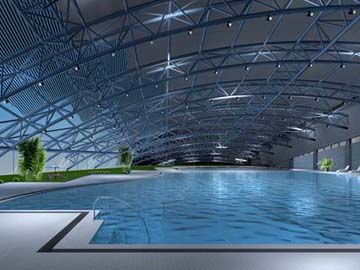What National Games are about?
By Dong Jun, CRI Sports Commentator
Not all, maybe not many or just a few, countries have a similar sporting event as the one now underway in China---National Games. Even a sub-continental meet may not necessarily be up to the scale of the latest Chinese domestic version of Olympiad in the eastern Jiangsu province.
What on earth are these games about? How did they come about? Why do Chinese deem them relevant now that the real Olympics will show up in less than three years in Beijing?
Well, involving more than a dozen thousand athletes from scores of delegations (as NOC delegations for the Olympics, these groups represent the country's provinces, municipalities, the military sports entity and the special administrative regions of Hong Kong and Macau) and consuming billions of dollars in venue construction and human dedication, these national games are indeed HUGE and costly. Nevertheless, equally enormous factors have contributed to their existance and probably further growth.
History

The inaugural National Games were held in Beijing in 1959 when the People's Republic was celebrating her tenth anniversary. The idea was endorsed by the communist leadership, many members of which, including Chairman Mao Zedong, were avid sports fans and had long been advocating athletic activities in the military both during and after wartimes. The style of the Chinese "Nationalympiad" resembled somewhat the Olympics, largely thanks to tips from the Soviet Union, a sports powerhouse and a one-time communist ally. When the Olympic medals were beyond reach, the Chinese, already the largest population in the world, decided to compete against themselves for the highest domestic accolades. Nearly 11 thousand athletes participated, for more than 11 hundred medals on offer. Even four world records were shattered in Beijing!
The great start was soon to be ensued unfortunately by economic chaos and political disruptions that would throw the fledging but fragile sporting system of New China into disarray. The second edition of National Games was pushed back to 1965 and the 3rd didn't come until 1975. The end of the notorious "Cultural Revolution" paved the way for the games to completely stay together and follow the Olympic routines – developing into a once-every-four-year event. From 1979 to 2001, Beijing, Shanghai and Guangdong rotated to host the games six times, with the only two-year delay in the early 1990s because of Beijing's duty to host the Asian Games. A parallel development during this period was China's return to the international Olympic family and ascendance to a major force in the Olympic arena.
If the rotation system were to stay, it would be Beijing to shoulder the responsibility now, disrupting its preparations for the 2008 Summer Olympics. So the top sports administrators were happy to hear four years ago that several provinces were keen to "topple" the tripartite regime and bid for the 2005 Games to be held in a fourth place. The monopoly system was immediately abolished and Jiangsu emerged as the host province, leaving future editions open to a long least of candidates starting Shandong in 2009.
What to Watch: Is it too local and irrelevant for an unbiased foreigner to watch China's domestic competitions? Well, sort of. We are not even sure that all domestic fans would be interested. But given the country's prowess in such sports as table tennis, badminton, diving, shooting and weightlifting, many of the finals will be arguably as spectacular as their Olympic medal contention. Rivals, especially those from Asia, would have many reasons to bother to follow the competitions closely for their own benefits in terms of corresponding tactics.

Any stars to follow? Well, the only though biggest name missing in the gallery is Yao Ming. That's right -- the giant center is already back in Houston for his NBA season. But leading the field are such super stars as Olympic 110m hurdle gold medalist Liu Xiang and the diving queen Guo Jingjing. Dozens of others maybe lesser known internationally, but are quite popular among Chinese fans, especially those from home provinces or regions.
For the third time in a row, athletes from Hong Kong and Macau are participating in the mainland's traditional games. Even before the games' opening ceremony, Steven Wong has already claimed a gold medal for Hong Kong, crowning in the men's Bike Moto Cross (BMX), a new event the Jiangsu games adopted to follow Olympic practice.
In fact, these games have been adopted in accordance with the Olympics, with the only exception of Wushu, the Chinese martial arts that China has been trying but yet to succeed to include in Olympic sports list. Softball and baseball may have to be eliminated in the London Olympics in 2012, but they remain official events in Jiangsu. (357 medal events of 32 sports are being contended)
Therefore, it's no exaggeration to say that China is taking this year's national games to rehearse for Beijing 2008 in terms of both organization and competition. Apparently convinced, the International Olympic Committee has sent a delegation to Nanjing for Wednesday’s opening ceremony. IOC President Jacques Rogge hopes to take sneak preview through it how spectacular the Beijing gala will be in less than three years.

Isn't it too costly to practice for the Olympics by heavily investing in an extravaganza of a similar scale? Well, Jiangsu and related authorities have been insisting that they have strictly followed a money-saving guideline throughout the whole games. Even though it may still turn out to be an expensive event (the main stadium -- Nanjing Olympic Center, along has been built on over 100 million US dollars), many argue it's worth the money which would otherwise go into commercial competitions before they take shape in China. To some extent, the National Games are filling some vacuum left by grass-root and professional leagues yet to take off.